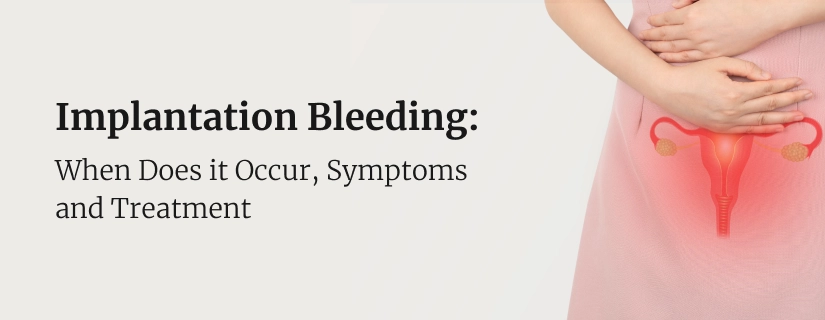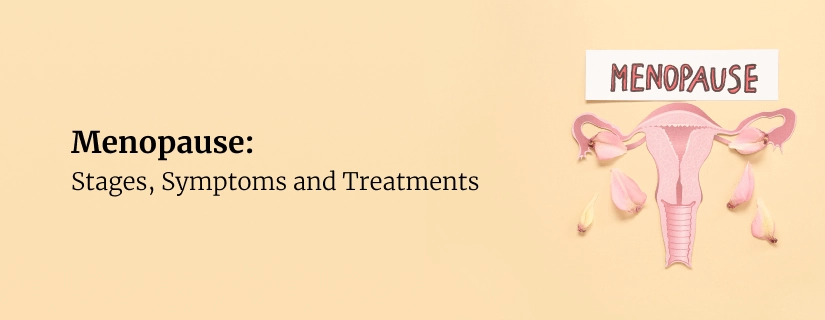-
Doctors
-
Specialities & Treatments
Centre of Excellence
Specialties
Treatments and Procedures
Hospitals & Directions HyderabadCARE Hospitals, Banjara Hills CARE Outpatient Centre, Banjara Hills CARE Hospitals, HITEC City CARE Hospitals, Nampally Gurunanak CARE Hospitals, Musheerabad CARE Hospitals Outpatient Centre, HITEC City CARE Hospitals, Malakpet
HyderabadCARE Hospitals, Banjara Hills CARE Outpatient Centre, Banjara Hills CARE Hospitals, HITEC City CARE Hospitals, Nampally Gurunanak CARE Hospitals, Musheerabad CARE Hospitals Outpatient Centre, HITEC City CARE Hospitals, Malakpet Raipur
Raipur
 Bhubaneswar
Bhubaneswar Visakhapatnam
Visakhapatnam
 Nagpur
Nagpur
 Indore
Indore
 Chh. Sambhajinagar
Chh. SambhajinagarClinics & Medical Centers
Book an AppointmentContact Us
Online Lab Reports
Book an Appointment
Consult Super-Specialist Doctors at CARE Hospitals
9 Ways to Increase Breast Milk Supply
Updated on 28 February 2024

Breastfeeding provides adequate nutrition for babies to grow. It offers unmatched immunological protection against illness along with lifelong health advantages for both mother and child. However, many new mothers worry about having an adequate milk supply to meet their baby’s needs. This concern is incredibly common, even among women with abundant milk production. This comprehensive guide covers evidence-based techniques to increase breastmilk production, potential causes of low supply, how to accurately assess if your supply is truly insufficient when to seek medical support, and the emotional aspects of breastfeeding challenges.
How To Increase Breast Milk
The key strategy for boosting milk supply is to breastfeed more frequently. Other research-backed tactics include:
1. Nurse at least 8 to 10 times per 24-hour period
- Allow your baby to fully drain one breast before offering the other.
- Frequent nursing signals your body to manufacture more milk.
2. Pump after or between feedings to mimic the baby’s suckling
- This cues your body to make more milk.
- Warm compressions before pumping can help milk eject easier and maximize output.
3. Ensure the baby latches deeply and feeds from both sides
- A proper latch with plenty of breast tissue in the baby's mouth stimulates the milk ejection reflex.
- Switch nursing sides during each feeding.
4. Eat a balanced diet and stay hydrated
- Drink plenty of fluids and eat regular meals with fruits, vegetables, proteins, whole grains, and healthy fats.
- Dehydration and poor nutrition can decrease supply.
5. Consume galactagogues
- Certain foods like oats, barley, leafy greens, garlic, and fenugreek contain plant compounds that may enhance breast milk production.
6. Reduce stress levels
- Anxiety, tension, fatigue, embarrassment, and other negative emotions can inhibit the milk ejection reflex.
7. Try lactation cookies or meals
- Some women swear by Baked goods and dishes containing ingredients like flaxseed, brewer’s yeast, and whole grains.
8. Get plenty of rest
- Nap when the baby sleeps.
- Proper rest keeps your body energized to produce milk.
In addition to diet and lifestyle measures, creating a positive feeding routine is key. Nurse baby on demand rather than by the clock. Offer both sides twice in each session. Gently massage breasts while nursing to help empty milk ducts. Skin-to-skin contact and keeping the baby close helps synchronize hormones and signals your body to make more milk.
How Breast Milk Supply Works
- Supply and Demand:
- When your breast milk comes in, your body uses a "supply and demand" system to produce milk. This means that the more milk is removed from your breasts, the more your body will make.
- Every time your baby breastfeeds or you pump, it tells your body to produce more milk.
- Importance of Breastfeeding:
- If you give your baby formula instead of breastfeeding, your milk supply can go down. This is because when your baby isn’t nursing, less milk is being removed, and your body thinks it doesn’t need to make as much.
- It’s best to prioritize breastfeeding if you want to maintain a good milk supply.
- Effective Nursing:
- How your baby nurses also affects how much milk you produce. If your baby latches on well and suckles effectively, they will remove more milk, which helps increase your supply.
- The more often your baby breastfeeds, the more milk your body will make. Aim for frequent feedings throughout the day.
- Pumping for Milk Supply:
- If your baby isn’t getting enough milk during feedings, it’s important to pump regularly. Pumping helps remove milk from your breasts, sending signals to your body to keep producing more.
- Try to pump after breastfeeding or when your baby is asleep to ensure milk is being removed consistently.
- Signs of Adequate Intake:
- Look for signs that your baby is getting enough milk, like steady weight gain, having plenty of wet and dirty diapers, and seeming satisfied after feeding.
- If you’re unsure, tracking your baby’s feeding patterns can help.
- Body Adaptation:
- Your body is flexible and will adapt to your baby’s needs. If your baby starts feeding more frequently, your milk supply will usually increase to meet that demand.
- This adaptability means that if your baby nurses more, your body will respond by producing more milk.
- Healthy Habits:
- Taking care of your own health is important too. Drink plenty of water and eat nutritious foods to support your milk production.
- Staying well-hydrated and well-nourished helps ensure your body has what it needs to produce milk.
Potential Causes of Low Milk Supply
Discuss them with a lactation consultant or doctor. There may be treatment options to improve milk production through medication adjustments, pumping regimens, herbal remedies, and other evidence-based strategies catered to your situation.
Here are some potential causes of low milk supply for breastfeeding mothers:
- Infrequent Nursing or Pumping: Not nursing or pumping often enough can lead to a decrease in milk production. The more you nurse or pump, the more milk your body produces.
- Poor Latch: If the baby is not latching properly, it can affect the amount of milk transferred and signal your body to produce less.
- Stress and Fatigue: High levels of stress or extreme fatigue can impact milk production. Taking care of your mental and physical health is essential.
- Hormonal Issues: Hormonal imbalances, such as those caused by thyroid problems or polycystic ovary syndrome (PCOS), can interfere with milk supply.
- Medical Conditions: Certain medical conditions, like diabetes or previous breast surgery, may affect milk production.
- Dehydration and Poor Nutrition: Not drinking enough fluids or not consuming a balanced diet can lead to decreased milk supply.
- Medications: Some medications can negatively affect milk production. Always check with a healthcare provider about any medications you are taking.
- Supplementing with Formula: If a baby is frequently supplemented with formula, it can reduce the baby’s demand for breast milk, leading to lower supply.
Foods and Drinks to Avoid While Breastfeeding?
While breastfeeding, it's important to be cautious about certain foods and drinks. For example:
- Alcohol: There is no safe amount of alcohol in breast milk for infants. If you choose to drink, wait until the alcohol has fully cleared from your breast milk before breastfeeding. This usually takes about two to three hours for 12 ounces (355 milliliters) of 5% beer, 5 ounces (148 milliliters) of 11% wine, or 1.5 ounces (44 milliliters) of 40% liquor, depending on your body weight. It may be wise to pump milk ahead of time to have some available for your baby later.
- Caffeine: Limit your intake to no more than 2 to 3 cups (16 to 24 ounces) of caffeinated beverages per day. Caffeine can enter your breast milk and may cause restlessness in your baby or disrupt their sleep.
- Fish: Seafood is an excellent source of protein and omega-3 fatty acids, but many types contain mercury or other harmful substances. High mercury levels in breast milk can be harmful to a baby's developing nervous system. To reduce your baby's exposure, steer clear of fish known to be high in mercury, such as swordfish, king mackerel, and tilefish.
Is Your Milk Supply Really Adequate?
Given the prevalence of worries about low supply, how can you know if your supply is adequate? Here are the signs of adequate milk supply:
- Baby steadily gains 4-8 ounces per week
- 6+ wet diapers per day after the first week
- 3-4 yellow, seedy, runny stools per day
- Baby seems satisfied and content after feeding
- You can hear gulping or swallowing noises while baby nurses
- Milk leaks from the opposite breast during or between feeds
Before assuming your supply is low, consider whether:
- Baby is going through a predictable growth spurt
- You recently started menstruating, which can temporarily affect the milk supply
- Baby is easily distracted or fails to properly latch while nursing
- Introducing formula supplementation negatively impacted your breastmilk production
Track your baby’s daily wet diapers, stools, feeding durations, and weekly weight gain. Share these feeding logs with your paediatrician to help accurately assess whether your supply aligns with the baby's needs. A certified lactation consultant can also evaluate a full feeding session to provide insights.
When to Seek Medical Help
If your baby exhibits possible signs of dehydration or malnutrition, such as:
- Lethargy decreased activity
- Loss of healthy skin tone, saggy skin
- Sunken eyes or fontanelle
- Dry diapers and concentrated urine
- Losing weight or failing to gain weight
- Increased crying between feedings
Promptly consult your paediatrician or lactation specialist for the next steps. Bring along your feeding logs and shared living environment details to inform the doctor. Discuss any potential issues like difficulty latching, nipple damage, tonguing, or facial structure impediments.
For optimal outcomes, meet with a lactation consultant within the first two weeks postpartum before potential issues escalate. Early professional support can dramatically improve breastfeeding success rates. Post-discharge clinic visits are often covered by insurance. Many consultants offer virtual sessions.
Emotional Aspects of Breastfeeding Challenges
In addition to physical factors, emotional aspects also affect breastfeeding outcomes. Reframe your thoughts to alleviate self-imposed pressure.
Don't hesitate to enlist support during the postpartum period. Allow your partner, family and friends to help with cooking, cleaning, and errands so you can focus on nursing and bonding. Access breastfeeding groups on social media or in your community for camaraderie and tips.
Breast milk is optimal for nutrition and disease prevention in babies, while formula is just a healthy alternative that supports growth and development. Your baby needs feed from a happy, healthy mother to grow healthily.
Conclusion
The period after birth presents emotional, mental, and physical challenges for mothers. Be kind to yourself on difficult days. With proper guidance and patience, most women can overcome hurdles and ensure healthy breastfeeding for their little ones.
FAQs
1) Is diet related to breast milk supply?
Yes, your diet can impact your breast milk supply. Eating a balanced diet with enough fluids and nutrients helps maintain a healthy milk supply. Some foods, like oats, fenugreek, and leafy greens, are thought to support milk production.
2) How do my breasts make breastmilk?
Breasts produce milk through a process called lactation. Hormones like prolactin and oxytocin stimulate the milk glands in the breasts to produce and release milk when your baby nurses or when you pump.
3) Do I need extra calories while breastfeeding?
Yes, breastfeeding moms generally need about 300-500 extra calories per day to support milk production. These calories should come from nutritious foods like fruits, vegetables, lean proteins, and whole grains.
4) What does breast milk contain?
Breast milk contains a perfect mix of nutrients for your baby, including proteins, fats, carbohydrates, vitamins, and minerals. It also has antibodies that help protect your baby from infections.
5) Why am I not getting enough breast milk?
Low milk supply can be caused by several factors, including stress, not breastfeeding or pumping often enough, certain medical conditions, or not drinking enough water. Hormonal imbalances can also affect milk production.
6) Will breast milk be reduced during periods?
Yes, some women may notice a temporary drop in milk supply during their period due to hormonal changes. This is normal and usually resolves once the period ends.
To Book an Appointment, call:
ENQUIRY FORM
SELECT CATEGORIES
-
Neurosciences (16)
-
Neurology (37)
-
Neurosurgery (14)
-
Orthopaedics (48)
-
Oncology (33)
-
Obstetrics and gynecology (52)
-
Pulmonology (23)
-
Urology (20)
-
Nephrology (13)
-
Psychiatry (7)
-
Dietetics and Nutrition (111)
-
General Medicine (63)
-
Cardiac Sciences (32)
-
Vascular & Endovascular Surgery and Interventional Radiology (15)
-
Gastroenterology (46)
-
Endocrinology (23)
-
Plastic Surgery (10)
-
Critical Care Medicine (5)
-
COVID-19 (16)
-
Dermatology (16)
-
Emergency Care (1)
-
Ophthalmology (4)
-
Pediatrics (14)
-
Laparoscopic and Bariatric Surgery (8)
-
ENT (15)
-
Kidney Transplant (1)
-
Liver Transplantation and Hepatobiliary Surgery (5)
-
General Surgery (3)
-
Internal Medicine (5)
-
Medicine Information
Ovulation: Signs & Symptoms, Cycle Timeline, and How Long Does Ovulation Last
Back Pain After C-Section: Causes and Home Remedies
YOU MAY ALSO LIKE
RECENT BLOGS
-

Preterm Birth (Premature Birth): Symptoms, Causes, Treatment and Prevention
13 May 2025
Read More
-

Rotablation Angioplasty: Benefits, Treatments, And Recovery Time
9 May 2025
Read More
-

What Is The Difference Between IUI and IVF?
9 May 2025
Read More
-

Venous Malformations: Causes, Symptoms, and Treatment
30 April 2025
Read More
-

Varicose Vein Foam Sclerotherapy: Treatment, Benefits, and Procedure
30 April 2025
Read More
-

Radiofrequency (RF) Ablation Treatment for Varicose Veins: Know More
30 April 2025
Read More
-

Varicose Vein Sclerotherapy: Treatment, Benefits, and Procedure
30 April 2025
Read More
-

Varicose Vein Endovenous Laser Ablation: Procedure, Benefits, Risks
30 April 2025
Read More
Have a Question?
If you cannot find answers to your queries, please fill out the enquiry form or call the number below. We will contact you shortly.

















































